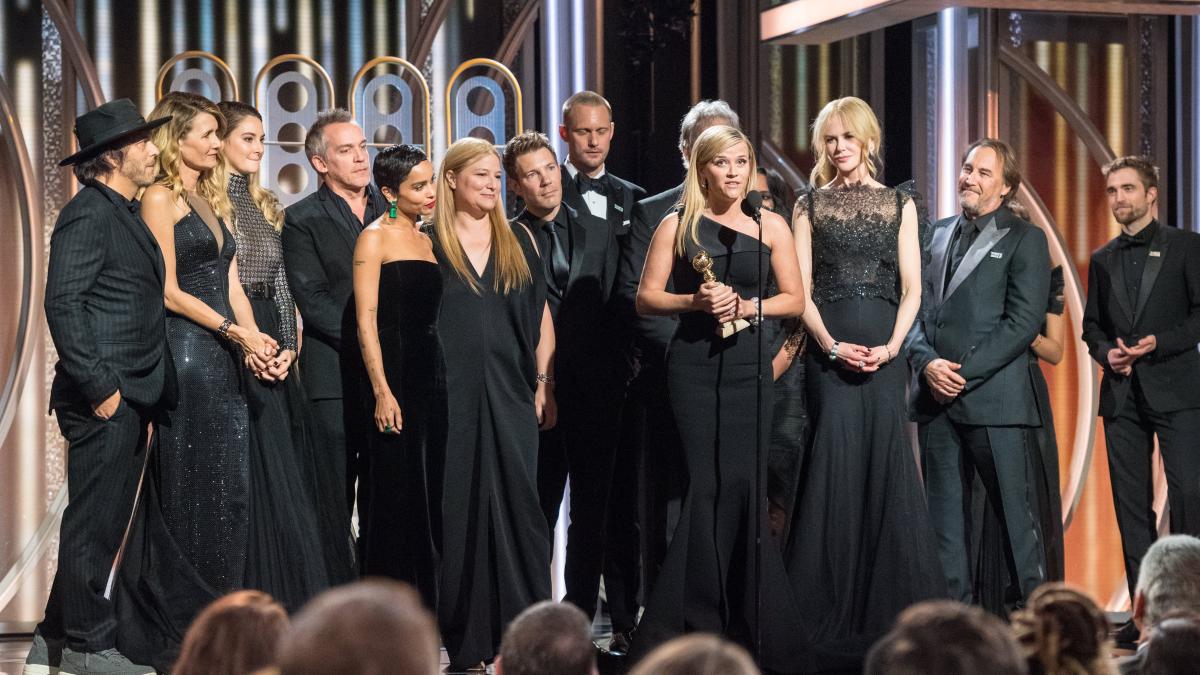In the midst of this watershed moment, where many are calling out sexual misconduct and demanding diversity in the workplace, the importance of not only speaking out, but also taking action, is paramount. The Hollywood industry, in recent years particularly, is one that has been characterised by this struggle for inclusion and equality, although now it seems to be on the cusp of a profound change. While the call for racial diversity is slowly becoming heard by Hollywood, and prevailing discussion is being stimulated by movements such as #MeToo and Times Up, Hollywood’s relationship with gender and racial equality seems to be shifting towards a more inclusive and diverse one. However, despite the encouraging moves made towards such equality, just how much progress has the industry made so far?
Times Up is a movement which has dominated recent conversation, with both men and women coming forward to call time on institutionalised sexism and sexual harassment. As a result we’ve heard emotionally charged testimonies from victims and witnessed powerful solidarity between men and women fighting for change, like the hundreds of Hollywood stars who wore black to the Golden Globes a few weeks ago. However, such statements, while powerful, need to be supported by action. Being in such positions of privilege as the Hollywood elite are, it is deflating to see that while so many are spearheading campaigns for gender and racial equality, there are still certain powerful celebrities who undermine these movements through their lack of action. A notable example is James Franco, who wore a Times Up badge to the Golden Globes and black attire in a stance of solidarity with all women, yet has been accused of sexual misconduct and misuse of directorial power by multiple women. It is this contradiction between action and words which hinders progress, as powerful artists such as Franco portray themselves as standing for equality, yet use their positions to undermine it.
Justin Timberlake, Selena Gomez and Kate Winslet to name a few, have all worked in recent projects headed by Allen, yet all of them have also supported the movements for gender equality – a disturbing contradiction rooted in privilege and ignorance.
This trend is also one that extends to actors who might not have committed any offences themselves, but have chosen to work with those who have, or have at least have been accused of, sexual misconduct. The most prominent example of this is film powerhouse Woody Allen, an extremely problematic director who has been accused on multiple occasions of sexual abuse. Famous actors, including Justin Timberlake, Selena Gomez and Kate Winslet to name a few, have all worked in recent projects headed by Allen, yet all of them have also supported the movements for gender equality-a disturbing contradiction rooted in privilege and ignorance. Timothee Chalamet, a young actor who has recently worked on a film with Allen, recently came out and expressed regret about working with the director, donating the profit he earned from this particular film to charities such as TIMES UP and RAINN. While this shows an awareness of the prevailing climate, many still choose to work with Allen, or have stayed silent regarding their work with him, allowing the director the liberty to continue making art without consequences. It is a reminder that people in positions of privilege, those with a platform to instigate change, need to consciously act with, not react to, these growing movements. Wearing black and a Times Up pin isn’t enough to transform a climate of sexual misconduct by itself, whereas consciously not choosing to work with abusers might actually make a difference.

In light of this, we can look at what has changed since last awards season, where Moonlight was robbed of it’s shining moment and President Donald Trump was the focal point for discussion. One of the most talked about moments of the Globe’s this year was Natalie Portman and her response to the best director category, calling out the “all the male nominees” and drawing attention to the continued lack of diversity. However, change is reflective in the recent oscar nominations, where, in the director category, white males are actually in the minority for a change. Jordan Peel’s racially charged horror Get Out and Greta Gerwig’s female-led coming of age film Ladybird have both earned nominations and respectively made history. In addition to this, Guillermo del Toro’s The Shape of Water, a story about a woman who falls in love with an amphibious creature, is a narrative reflecting themes of inclusion, sympathy and tolerance.
Wearing black and a Times Up pin isn’t enough to transform a climate of sexual misconduct by itself, whereas consciously not choosing to work with abusers might actually make a difference.
Cinematographer Rachel Morrison has also made history, being the first woman to ever receive a nomination in that category for her work on Mudbound. These nominations show, despite the fact there is still much progress to be made, how the industry is starting to recognise and celebrate its diverse talent. We can only hope for the longevity of this change and that the recognition of such diverse talent is something which continues to grow. We can also hope that people in positions of privilege, as so many are already doing, choose to act, rather than react, to the movements pushing for gender and racial equality, so the industry can be seen as truly inclusive and diverse.
Lucy Carr
(Image courtesy of The Times)

